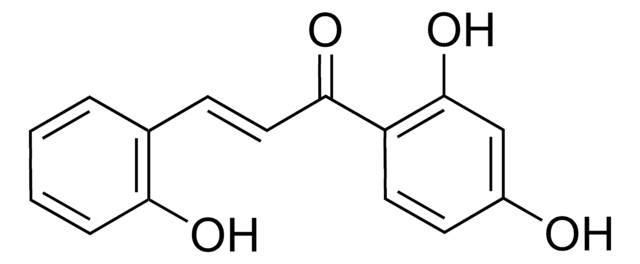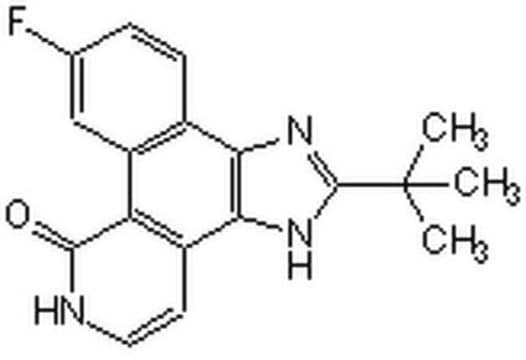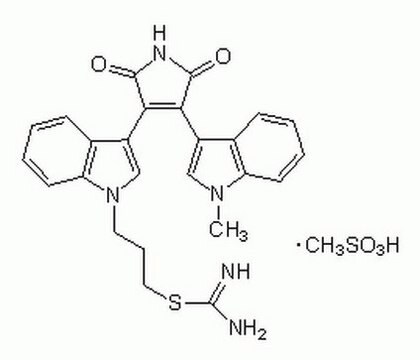420104
JAK3 Inhibitor II
The JAK3 Inhibitor II, also referenced under CAS 211555-04-3, controls the biological activity of JAK3. This small molecule/inhibitor is primarily used for Phosphorylation & Dephosphorylation applications.
Synonym(s):
JAK3 Inhibitor II, 4-[(3ʹ-Bromo-4ʹ-hydroxyphenyl)amino]-6,7-dimethoxyquinazoline, WHI-P154
About This Item
Recommended Products
Quality Level
Assay
≥97% (HPLC)
form
solid
manufacturer/tradename
Calbiochem®
storage condition
OK to freeze
protect from light
color
pale yellow
solubility
DMSO: 100 mg/mL
shipped in
ambient
storage temp.
−20°C
InChI
1S/C16H14BrN3O3/c1-22-14-6-10-12(7-15(14)23-2)18-8-19-16(10)20-9-3-4-13(21)11(17)5-9/h3-8,21H,1-2H3,(H,18,19,20)
InChI key
CBIAKDAYHRWZCU-UHFFFAOYSA-N
General description
Biochem/physiol Actions
JAK-3
Packaging
Warning
Reconstitution
Other Notes
Sudbeck, E.A., et al. 1999. Clin. Cancer Res. 5, 1569.
Goodman, P.A., et al. 1998. J. Biol. Chem. 273, 17742.
Narla, R.K., et al. 1998. Clin Cancer Res.4, 2463.
Legal Information
Storage Class Code
11 - Combustible Solids
WGK
WGK 3
Certificates of Analysis (COA)
Search for Certificates of Analysis (COA) by entering the products Lot/Batch Number. Lot and Batch Numbers can be found on a product’s label following the words ‘Lot’ or ‘Batch’.
Already Own This Product?
Find documentation for the products that you have recently purchased in the Document Library.
Our team of scientists has experience in all areas of research including Life Science, Material Science, Chemical Synthesis, Chromatography, Analytical and many others.
Contact Technical Service








